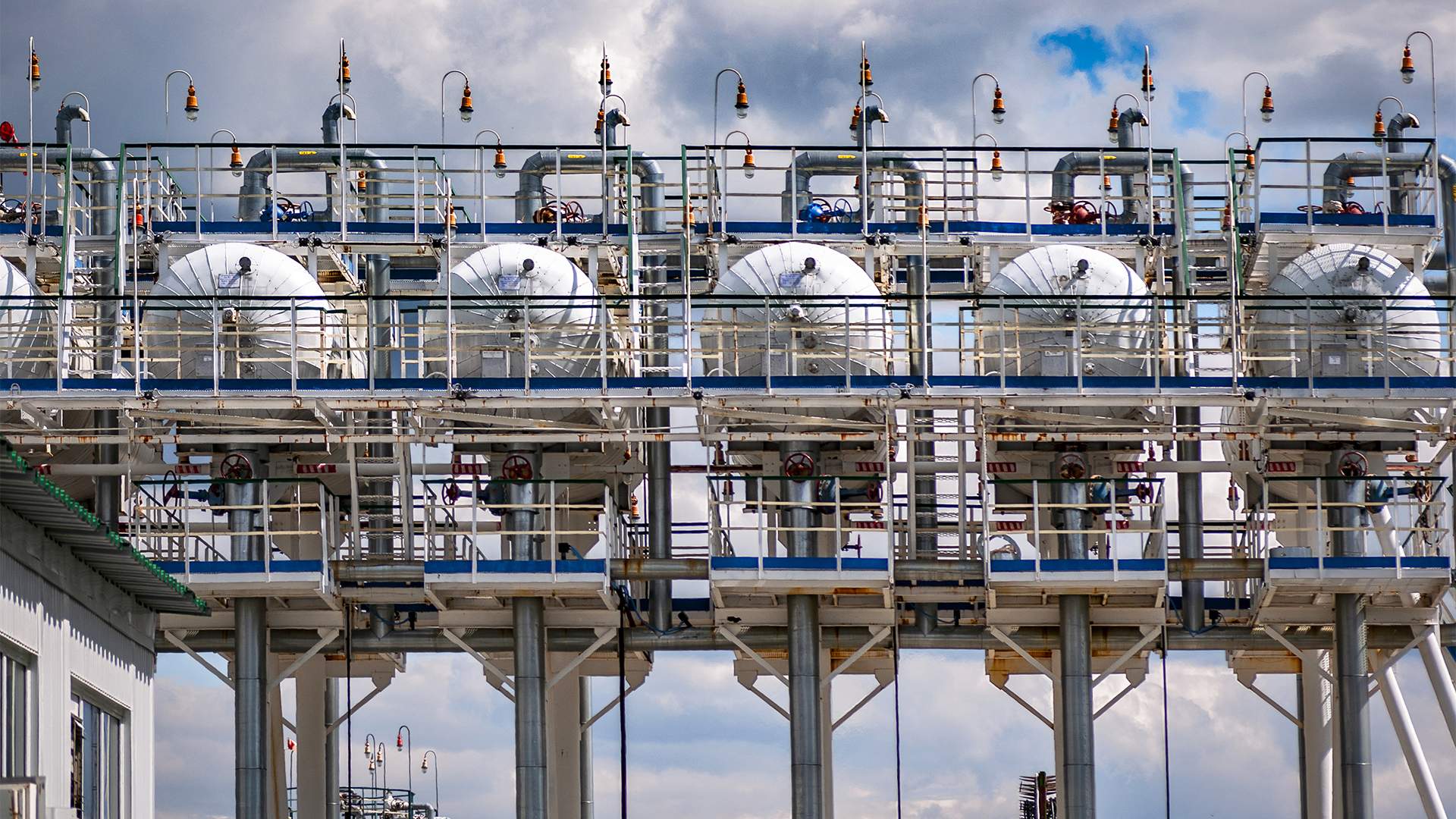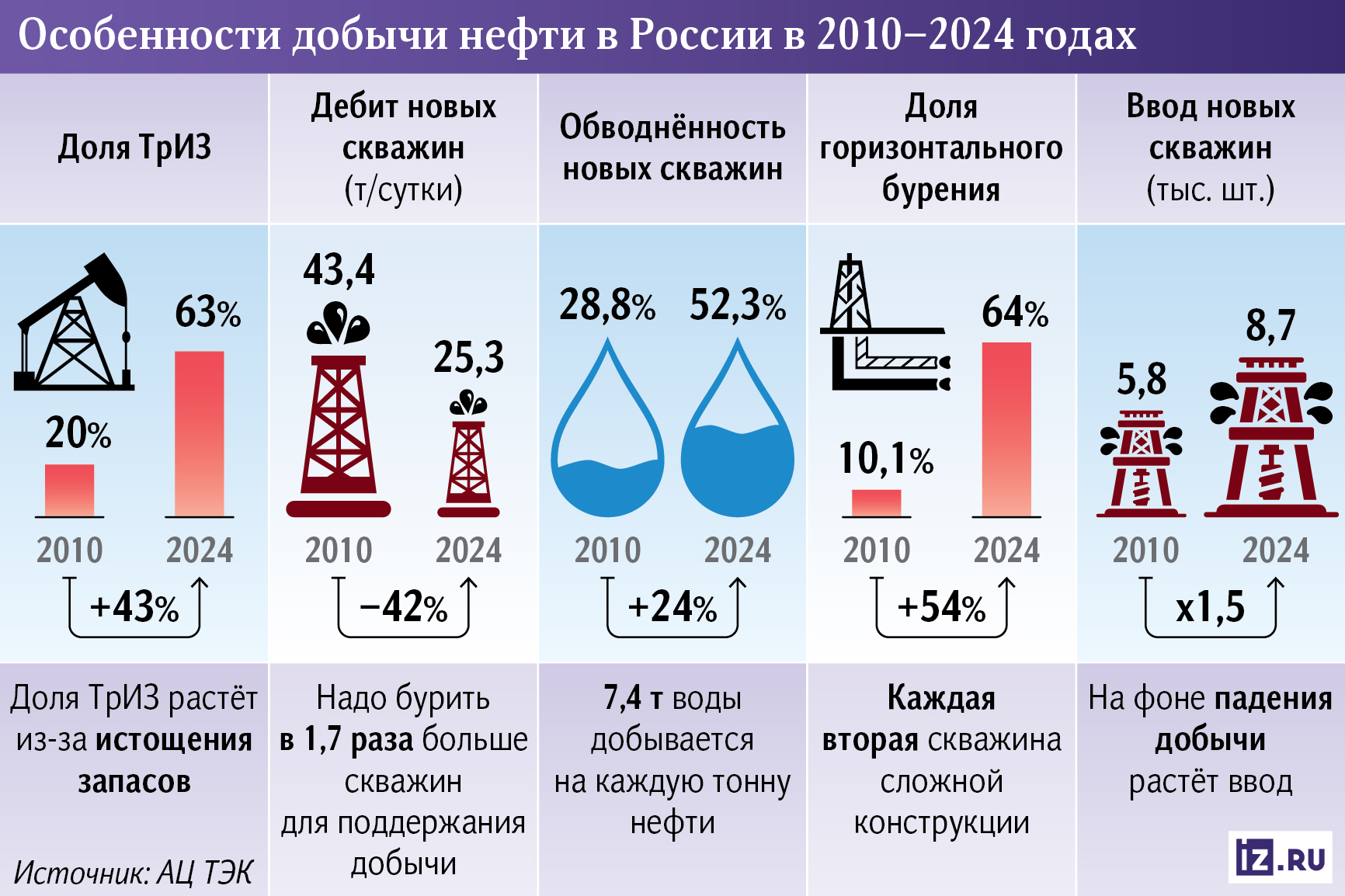Backup option: the authorities are preparing a new tax maneuver for the oil industry

The Ministry of Energy has included a new tax maneuver in the Energy Strategy 2050, which implies both reducing the burden on the oil industry and doubling investments in it. This will have a positive impact on related industries, which, according to the agency's idea, will replenish the budget. Experts believe that the focus should be shifted to other areas where the level of fiscal withdrawals is significantly lower, such as ferrous and non-ferrous metallurgy, banking and telecommunications sectors. Analysts believe that after the tax increase is abandoned, it is possible to think about a point reduction in the burden for certain categories of "difficult" stocks.
A new tax maneuver for the oil industry
The Ministry of Energy is preparing a new tax maneuver for the oil industry, which implies reducing the burden on the industry and doubling investments in it. This will have a multiplier effect on related industries. The energy department believes that their contributions to the budget will be able to make up for lost revenues and preserve production. This was stated by Anton Rubtsov, head of the Department of the Oil and Gas Complex of the Ministry of Energy, in a speech at a meeting of the subcommittee on energy of Delovaya Rossiya, sources familiar with the discussion of the event told Izvestia.
According to one of them, the tax burden can be reduced by expanding the system of additional income tax (income tax) or mineral extraction tax benefits (mineral extraction tax). As for exploration work, "these may be tools related to some deductions from other taxes."
Another interlocutor noted that the agency intends to conduct "careful" work in this direction with the Ministry of Finance and to register the implementation of this strategy in the "action plan" for work within the framework of the Energy Strategy 2050.
— This is not a one-year job, — said the interlocutor.
The Ministry of Energy did not respond to Izvestia's request. However, the information message from Delovaya Rossiya notes that Anton Rubtsov and Evgeny Tyrtov, Director of Analytics in the oil and gas Industry at the Analytical Center of the Fuel and Energy Complex of the Ministry of Energy, attended the event.
— Experts emphasized the importance of overcoming internal structural challenges, adapting to changes in the external market and ensuring competitiveness through technological sovereignty and flexible tax regime. They also stressed the need to reduce the fiscal burden on the industry in exchange for increased production and investment in projects to develop hard—to-reach reserves while maintaining balance in the global oil market.
In addition, Anton Rubtsov said during the conference "Hard—to-recover reserves - present and future" on May 27 that Russia needs to double investments in the industry to maintain production at the level of 540 million tons until 2050.
Speaking about what sources of financing can be used to maintain production, he mentioned, first of all, the income of companies from the sale of oil. Secondly, according to him, the state should also become an investor.
— In order for businesses to have funds, it is necessary for the state to take less at the moment. I'm not saying that this will happen this year or next year," Anton Rubtsov added.
Maintaining oil production
In mid-April, the government approved the Energy Strategy of Russia until 2050, developed by the Ministry of Energy.
It notes that "the Russian Federation has significant untapped resource potential to maintain oil and gas condensate production at at least 540 million tons per year and increase spare capacity to flexibly respond to changes in the global market — the target scenario."
To do this, it is necessary to create conditions for the introduction of unprofitable reserves, which amount to more than 10 billion tons, especially at complex facilities with low permeability using horizontal drilling, hydraulic fracturing in depleted fields, using tertiary methods of oil recovery, increasing the oil recovery coefficient, which will involve more than 5 billion tons of reserves in the development. and it will ensure the development of new production regions, which will produce about 80 million tons on the horizon of 2036, the document says.
Meanwhile, production costs in Russia are increasing every year. As noted in Evgeny Tyrtov's presentation to the meeting of the subcommittee on energy of Delovaya Rossiya, which was reviewed by Izvestia, the share of hard-to-recover reserves (TrIZ) increased by 43 percentage points from 2010 to 2024 (from 20 to 63%). Well production decreased over the same period from 43.4 to 25.3 tons per day, waterlogging increased from 28.8 to 52.3%, and the share of horizontal drilling increased from 10.1 to 64%.
At the same time, according to the presentation, the increase in drilling costs is 1.4 times higher than inflation.
Meanwhile, Finance Minister Anton Siluanov, during a speech in the State Duma on May 26, called it inappropriate to increase the tax burden on companies in the oil and gas sector.
"When we adopted tax changes last year, we agreed that we would not fundamentally change our approaches to taxation until 2030, we propose to be guided by this principle," he said, answering a question from deputies at a meeting of the State Duma Budget Committee whether it would be worthwhile to further increase taxation of oil companies.
At the same time, the minister noted that the level of fiscal burden in the industry is probably the highest: depending on the price situation, it ranges from about 70 to 80% of pre-tax profits.
As previously reported by Deputy Prime Minister Alexander Novak, the share of the fuel and energy sector in GDP is about 20%, and the volume of investments in it by the end of 2024 is 10.5 trillion rubles. And according to Evgeny Tyrtov, the share of the fuel and energy complex in the country's GDP, taking into account related industries, is 30-40%.
Three key conditions are needed to enter unprofitable stocks: cost reduction (through preferential treatment, tax deductions, R&D subsidies), the introduction of sophisticated technologies and the formation of infrastructure in new regions (transport, energy supply, services), said Dmitry Kasatkin, Managing Partner of Kasatkin Consulting.
"Without these three conditions, the involvement of low—margin stocks is impossible," he told Izvestia.
Izvestia has sent inquiries to all major oil producing companies.
Will there be a drop in production
According to Izvestia's interlocutors, the meeting participants noted that it was necessary to deal with changes in the tax system in the Russian oil industry "yesterday."
At the same time, according to Dmitry Kasatkin, Russia will be able to maintain production at the level of 540 million tons in the next 5-10 years, even only due to the old deposits of Western Siberia, but at increasing costs.
— On the horizon of 10-15 years, it is already necessary to be prepared for a decline in production in Western Siberia and its replacement by new regions — Eastern Siberia and the Arctic. TrIZ's share in production already exceeds 30%, and in order to compensate for the natural decline in production (4-6% per year), it is necessary to drill more and deeper, which affects the cost. Over the past 10 years, the unit cost of drilling in Russia has more than doubled in rubles, largely due to inflation, increased complexity of wells and the transition to horizontal drilling," the expert noted.
He predicts for the next 10 years to maintain the same growth rates of the unit cost of production.
According to Yuri Stankevich, deputy chairman of the State Duma Committee on Energy, by 2025, the cost of oil production in Russia has more than doubled compared to 10-15 years ago.
⠀
For example, over the past three years, the average cost of a heavy rig for exploratory drilling has increased from 0.7–1 billion rubles to 1.5–2 billion.
⠀
— The reasons for the increase in the cost of production on the surface are withdrawal to deeper deposits, deterioration of the resource base (a drop in well production rates by 30-40% requires more intensive drilling), rising prices and tariffs for materials and services, and high inflation, — he noted.
According to him, it is necessary to make changes to the tax system.
— And we are not talking about reducing the tax burden. Over the years of discussion, the recipe has not changed: it is necessary to move away from charging rent to taxing the financial result. The NDT practice, which has been in force for several years, has proven its effectiveness. It is necessary to expand the area of this tax to all deposits in the traditional provinces (Western Siberia), and then to the whole country," the deputy believes.
General Director of Independent Analytical Agency of the Oil and Gas Sector LLC (NAANS-Media) Tamara Safonova believes that in a period of challenges and unprecedented sanctions pressure, the challenges are to create a balance between the interests of the state and business, ensure energy efficiency, and take care of available resources for future generations.
Valery Andrianov, an associate professor at the Financial University under the Government of the Russian Federation, agrees with his colleague. According to him, low global oil prices are a serious obstacle to the development of difficult reserves. Therefore, on the one hand, it is necessary to carefully select reserves and technological methods of their development, which can give the greatest economic effect. On the other hand, it is necessary to improve the current tax system in order to involve "difficult" reserves in the exploitation.
According to him, first of all, we should abandon the idea of constantly increasing the tax burden on the oil industry and shift the focus to other industries where the level of fiscal withdrawals is significantly lower — ferrous and non-ferrous metallurgy, banking and telecommunications sectors, and so on.
— Judging by the latest statements by government officials, this approach is beginning to prevail. After rejecting the tax increase, we can also think about reducing the burden on certain categories of "difficult" stocks," believes Valery Andrianov.
Dmitry Kasatkin stressed that reducing the tax burden is necessary because the profitability of extraction from TrIZ and depleted deposits is low or negative against the background of the current mineral extraction tax and mineral extraction tax.
"The tools are to expand the application of mineral extraction taxes to mature fields, tax holidays for TRIZ, investment deductions, and lower export duties on high—cost projects," he believes.
Without tax incentives, the involvement of complex reserves is economically impractical even at $80 per barrel, the expert concluded.
Переведено сервисом «Яндекс Переводчик»










